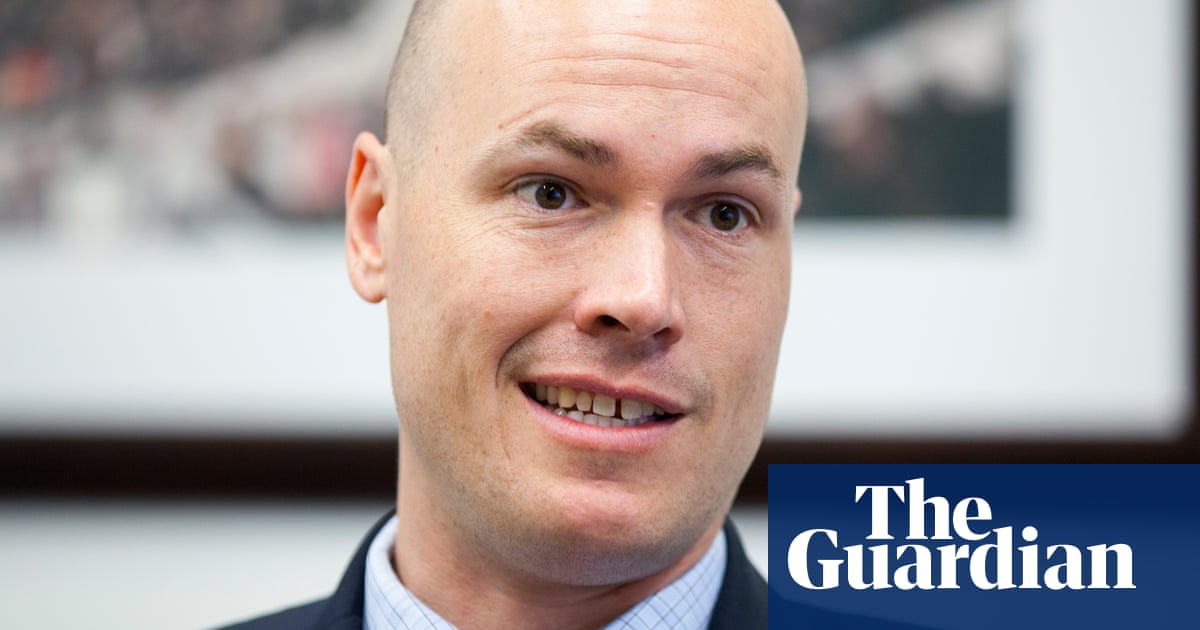When Iowa senator Joni Ernstnow infamouslytold a town hall audience last month that “we’re all going to die” in response to concerns about proposed cuts to Medicaid in Donald Trump’s signature spending bill, her Democratic challenger JD Scholten was on his way to a funeral.
Scholten, a state lawmaker and minor league baseball player, said it was at that funeral for a local Democratic activist that his tentative plans to run for Congress for a third time – this time for the upper chamber – suddenly became more certain.
“Sitting there at the funeral, you know, you question life, you question a lot of different things and hearing all the wonderful things that Gary Lipshutz did in his life and the activism, it just inspired me and I thought, I need to do this.”
The next day whenErnst doubled downwith what Scholten described as a “very disrespectful ‘apology’” – posting a video on social media in which she walked through a cemetery and sarcastically apologized for her comments – “that’s when I was like, game on,” he said.
Scholtenannouncedearlier this month that he’s challenging Ernst for her seat next year, and one day after that, the nonpartisan Cook Political Report shifted the race from “solid Republican” to “likely Republican”.
“I think so much of modern politics is about matching the moment and we just said, you know, this won’t be the perfect launch but we’ll get it done,” he said.
Scholten describes himself as a “baseball-playing, beer drinking, Bible-reading, working-class proud Prairie populist”. He’s upfront about the challenges facing his home state. “I love where I’m from, but we haven’t bounced back since the 2008 economic crisis,” he said. “The status quo is just not working, both politically and economically for most ofIowa.”
Iowans are already struggling with inadequate healthcare, and that’s before huge proposed cuts to Medicaid, he said.
Ernst made her recent controversial comments in response to a question at a town hall about her support for the US president’s signature spending bill, which would likely strip Medicaid coverage from 8.7 million people and leave 7.6 million more Americans uninsured. Scholten said the cuts will also have detrimental effects on rural hospitals and nursing homes in Iowa, which would impact urban hospitals as well.
Some in the state have taken to calling her “Joni Hearse”, he said.
Ernst has also faced backlash from the right wing of her party in recent months for initially hesitating on confirming the secretary of defense,Pete Hegseth.
Scholten is not the first or the onlyDemocratto announce a challenge to Ernst, who has served in the senate since 2015. On Wednesday, state senator Zach Wahls announced a campaign as well, including a clip of her town hall comments in his launch video.
But as Scholten notes, he’s the only Democratic candidate who has run for federal office before and who over-performed the Democrat on the top of the ticket by eight-and-a-half points when he won his state house seat last year.
He also claims his full-time job – a pitcher on the Sioux City Explorers minor league baseball team – is the best one to prepare him for a messy primary and long campaign.
“A minor league baseball season is a grind. It is a marathon and not a sprint. Every night you have to perform and even on your off days, you have to be good, or you’re going to get released.”
But more importantly, he said he has insight into a demographic thatDemocratshave struggled with since the 2024 election: younger men.
“I don’t have to hire a consultant to do a focus group. I can ask them and figure out ways to get my message out better so they care about what I’m passionate about just as much as I’m listening to what they’re interested in.”
When Scholten ran for Congress in 2018 and then 2020, he was known for having a used Winnebago RV he named “Sioux City Sue” that would criss-cross the district.
He said he hopes to recreate the van and get out to all of Iowa’s 99 counties.
